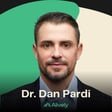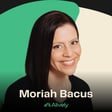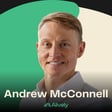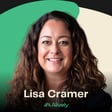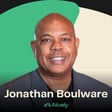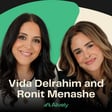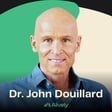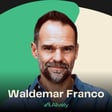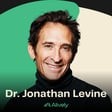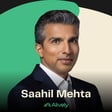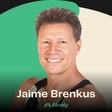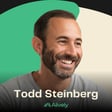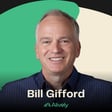
Harness The Healing Power Of Nature with Aimee-Jean Greenacre - E7
In today's fast-paced world, it’s easy to feel disconnected from the healing power of nature and struggle to cultivate habits that support our overall well-being. We may feel overwhelmed by the demands of modern life, neglecting the importance of mindfulness practices and the impact of nutrition on our physical, emotional, and spiritual health. This episode explores how reconnecting with nature, forming intentional habits, and integrating mindfulness practices can help us navigate life's challenges with greater resilience and vitality.
Aimee-Jean Greenacre is renowned for her holistic approach to helping women reconnect with their bodies, intuition, and overall well-being. With a background in dance and movement, Aimee-Jean has masterfully integrated these elements into her coaching practice, empowering her clients to achieve emotional release through physical expression. Her transformative work has positively impacted the lives of countless women, from busy professionals to stay-at-home moms, guiding them on a journey of self-discovery and inner harmony.
“There's so much more to this conversation of purpose and joy and pleasure and play that we have stopped really giving attention to since we were kids.” - Aimee-Jean Greenacre
In this episode you will learn:
- The importance of establishing daily rituals and mindfulness practices for intentional living and emotional well-being.
- How Aimee-Jean navigated challenging emotions and transformed her life after her mother's cancer diagnosis and a profound experience in the Amazon jungle.
- The benefits of incorporating juicing into your routine for nutrient density and detoxification, with specific recommendations for vegetable juice combinations.
- Insights into ideal foods to consume during different times of the day, aligning with nature's rhythm and the body's digestive processes.
- Strategies for managing stress through movement practices like dance, yoga, and hiking, as well as the importance of connecting with nature and sunlight for overall well-being.
- The societal impact of food choices and the need for education and effort in making healthier dietary decisions, despite the challenges posed by the standard American diet and food subsidies.
Resources
- Connect with Aimee-Jean on Instagram: https://www.instagram.com/greenshaker
- Discover more about Aimee-Jean's work and offerings: https://www.aimeegreenacre.com/
- Shop all the products Aimee-Jean mentions in the episode: https://alively.com/products/aimeejeangreenacre
This podcast was produced by the team at Zapods Podcast Agency:
https://www.zapods.com
Find the products, practices, and routines discussed on the Alively website:
https://alively.com/

